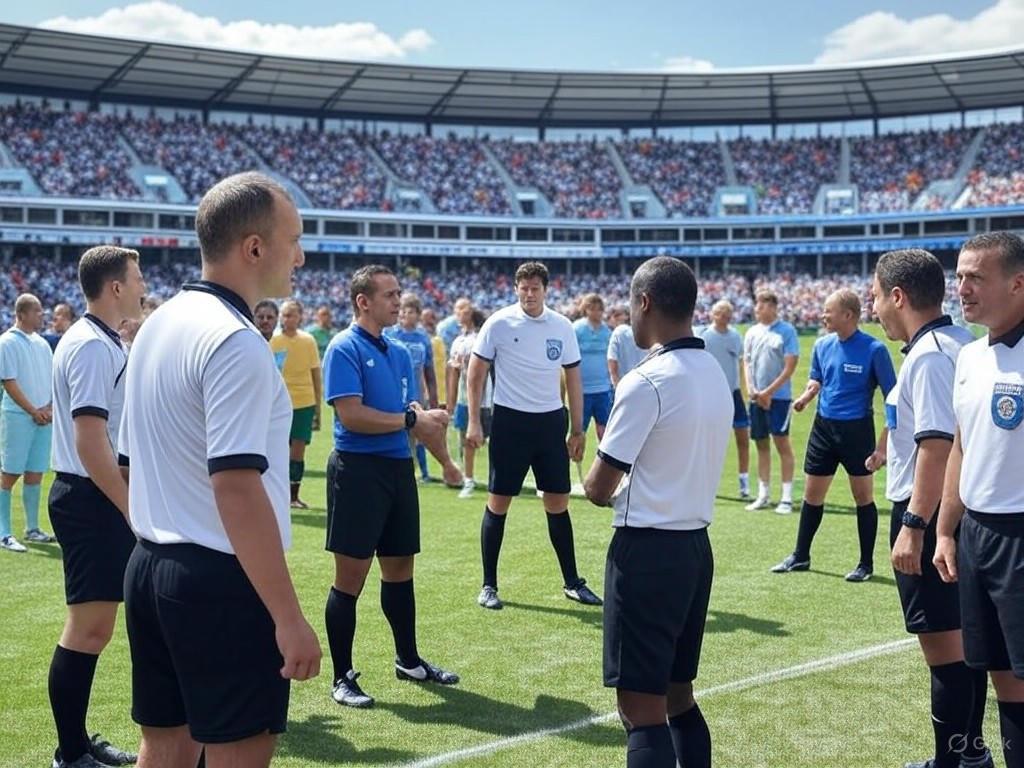Imagine a world where referees make accurate calls every single time. This dream is becoming a reality, thanks to artificial intelligence (AI). AI is changing sports officiating by providing impartial decisions and improving fairness in games. But is it ready to replace human referees completely?
AI systems like Hawk-Eye and the Electronic Line Calling (ELC) are already making waves in tennis and cricket by providing precise ball tracking[1]. These systems use multiple cameras and real-time 3D analysis to decide if a ball is in or out. Tennis will fully adopt electronic line calls by 2025, eliminating line judges from the ATP tour[2]. This shift means players and fans can expect more consistent and fair calls, cutting down on controversial errors that have plagued sports for years.
In Major League Baseball (MLB), the introduction of Automated Ball-Strike (ABS) systems is also a major leap[3]. These systems allow players to challenge umpire calls in real-time, using AI to provide immediate verification. During spring training, this technology has helped fine-tune strike zones and ensure each pitch is called correctly. The results have been promising, with AI successfully overturning many incorrect umpire calls. However, the MLB is proceeding with caution, ensuring that AI assists rather than entirely replaces human judgment in the sport.
Football and other sports are also seeing similar technological advancements. The National Football League (NFL) is testing Hawk-Eye technology to measure first downs more efficiently. Despite this, the system is designed to supplement the traditional chain gang rather than replace it entirely[4]. This approach maintains the human element while utilizing AI for complex or finer point decisions.
While AI has shown its strengths in processing data quickly and making precise calls, it is not without its limitations. Technology can still fail, as evidenced by several instances when tech glitches produced incorrect calls, sparking debates over AI's reliability in high-stakes environments. It's clear AI won't completely replace human referees anytime soon. People are essential for subjective decisions and managing the human side of sports, like players' behavior and the game's pace[5].
The future of sports officiating will likely involve a balanced approach. AI will handle the cut and dry calls, while human referees maintain control over the more nuanced aspects of the game. This collaboration is crucial to ensuring that sports remain both fair and engaging for everyone involved.
As sports leagues continue to integrate AI into their systems, the focus will remain on improving the game's fairness without losing its spirit. AI's role in sports officiating presents exciting possibilities, promising a new era of accuracy and trust in how we play and watch games.
References:
1. The Future of AI in Sports: How Technology is Reshaping the Industry
2. ATP to fully switch to electronic line calls by '25
3. MLB Testing Automated Ball-Strike Challenge System During Spring Games
4. NFL Will Use 'Hawk-Eye' Technology to Measure First Downs in 2025
5. Future of Sports Officiating: Will AI Replace Human Referees?
